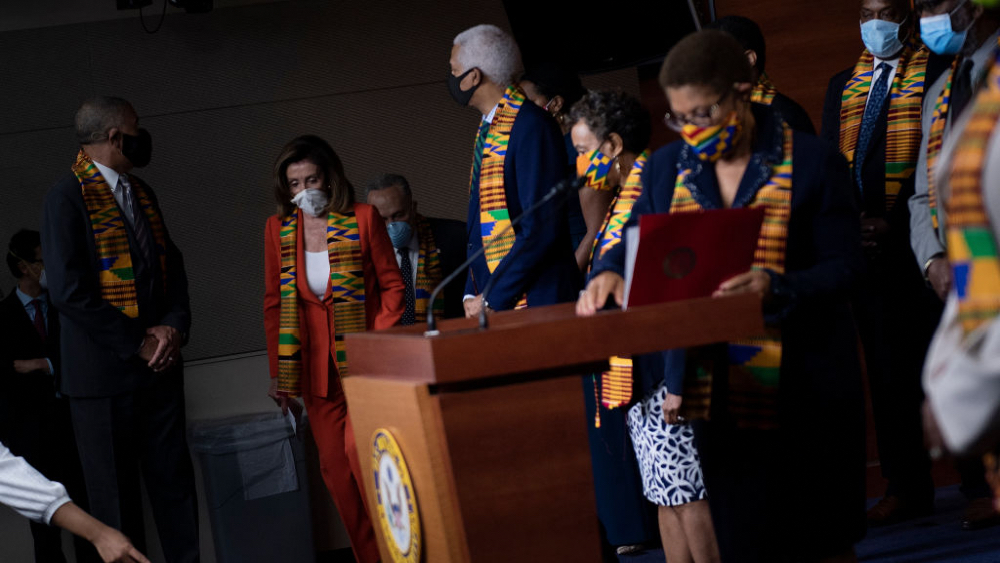If you’re interested in sharing your opinion on any cultural, political or personal topic, create an account here and check out our how-to post to learn more.
____
Those with their eyes open in 2020 — even at a squint — can see that there remains a real and festering wound in America. The conversation is not whether there is a deep wound of racism in our country, but how pervasive is that wound. While exposing the root source of this wound, we need to pursue a remedy of practical, systemic and sustainable policy that will deter, neutralize and counter the deathly manifestations of racism in our society.
The truth is that we have witnessed a disturbing spike in activity by white supremacists over the past four years, unleashed against Blacks, Jews and many others in our community. While we must tackle this bigotry head-on through a multi-pronged strategy, we must do so with the sobriety that racism in America is not a four-year-old problem, but a 400-year-old problem. It is a wound that does not only manifest as police brutality, but also as implicit bias in employer hiring and promotion decisions. Yes, it manifests in white nationalism; but it also manifests in systemic institutionally-fostered economic, educational and health inequities.
It manifests as hate crimes and mass incarceration; but it also manifests as a privileged white woman breaking the law in a park who feels entitled to summon the cops on a law-abiding Black man who would dare challenge her sense of privilege. It manifests as incitement in the White House to deploy the military and “vicious dogs” on sincere and disheartened Americans ironically protesting the abuse of power; but it also manifests as the National Football League blackballing and making a public example of a Black athlete who dare use his platform to peacefully protest police brutality. It manifests through those who slander American citizens and leaders of color by telling them to return to their countries; but it also manifests as those who feel deeply entitled to define “blackness” by our loyalty to their own agenda. The blight of racism in America is not merely institutional, but it is social and its seeds are personal, even when we huddle in our own comfortable cultural circles and secretly or unconsciously in our hearts stereotype “the other” as unworthy of our equal embrace.
In reality, this sickness is not truly a sickness of superiority, but a sickness of hidden and irrational fears — insecurities masking as superiority to stabilize what is frail within. And while a deeper psychoanalysis of how to uproot the deepest recesses of this festering wound is perhaps another discussion for another time, and while we do need peaceful protests to shine light on the problem, let us now channel our focus on the need for a federal policy response that will compel states to prosecute hate crimes and excessive use of deadly force by authorities (and frankly so many other issues). Just as the leaders of the Civil Rights Movement recognized that states would not police themselves in curbing violations of the 14th and 15th amendments without federal compulsion, we need a focused legislative agenda crafted by leaders from the community and supported by political allies and grassroots organizations. The Justice in Policing Act of 2020 is a critical step in the right direction.
We cannot change hearts through policy alone. Nonetheless, shifts in social norms that defy the status quo are almost always resisted until they become embedded in the social fabric through the law, and other effective means. The law first and foremost deters and provides redress for wrong and harmful behavior, as normative social consciousness later comes into compliance. The law is powerful, and we need to use it to effectuate “real” change in our society.
____
Ansel Kebede Brown is Visiting Assistant Professor at North Carolina Central University School of Law, where he teaches Civil Procedure and Legal Letters, with a research focus in international law and Pan-Africanism.
